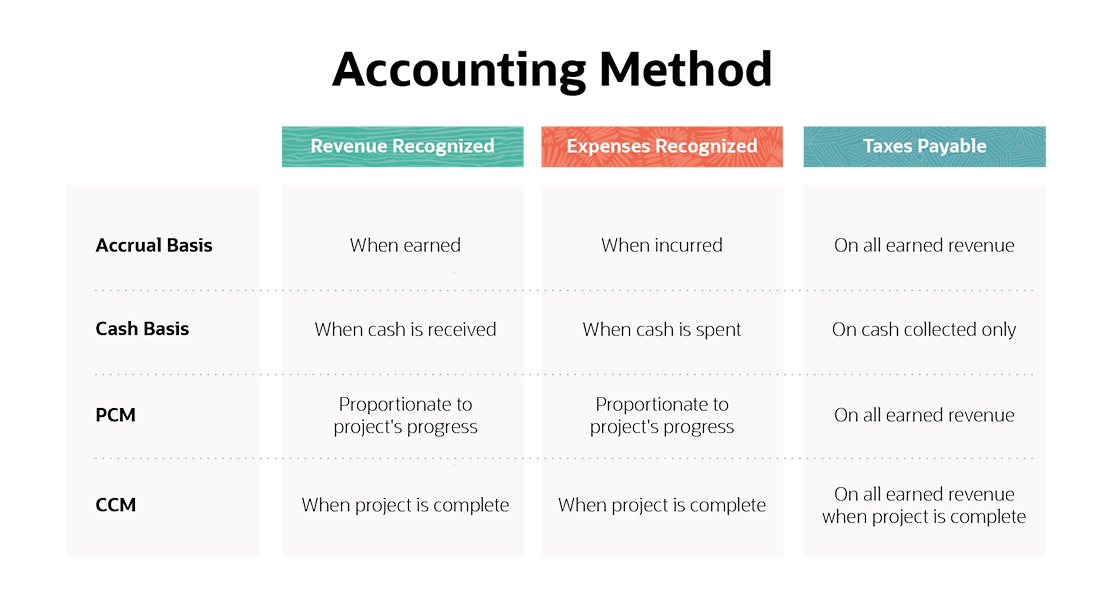Construction Accounting: Simplifying Complex Financials in the Construction Industry
Construction Accounting: Simplifying Complex Financials in the Construction Industry
Blog Article
Checking Out the Value of Building Accounting in the Building Industry
The building and construction industry operates under unique financial challenges that require a specific strategy to accounting. Building and construction bookkeeping not only makes certain the accuracy of economic coverage however likewise plays a critical duty in job monitoring by enabling reliable job costing and source allowance. By understanding its essential concepts and benefits, stakeholders can substantially influence job end results. However, the complexities intrinsic in building and construction audit raise questions concerning ideal techniques and the devices readily available to take care of these intricacies successfully. What techniques can construction companies implement to maximize their economic processes and drive success?
Special Obstacles of Building And Construction Bookkeeping
Regularly, building and construction accountancy provides special difficulties that distinguish it from other sectors. One key difficulty is the complex nature of construction jobs, which often include multiple stakeholders, rising and fall timelines, and differing guidelines. These variables necessitate careful tracking of expenses connected with labor, products, equipment, and overhead to keep job earnings.
An additional significant difficulty is the need for precise task costing. Building and construction business need to designate expenses to particular jobs accurately, which can be difficult as a result of the long period of time of jobs and the capacity for unanticipated costs. This need demands robust audit systems and practices to ensure timely and specific economic coverage.
In addition, the building market is susceptible to change orders and agreement adjustments, which can further complicate economic monitoring and forecasting. Properly representing these adjustments is important to make certain and avoid disagreements that tasks continue to be within spending plan.

Key Principles of Construction Accounting
What are the foundational concepts that lead building and construction audit? At its core, building audit focuses on precise tracking of prices and profits associated with details projects. The initial principle is using job setting you back, which ensures that all costs associated to a project-- labor, products, expenses-- are diligently recorded and assigned. This permits accurate productivity analysis at the job degree.
An additional trick principle is the application of the percentage-of-completion method. This strategy acknowledges earnings and expenses proportionate to the project's development, giving a more reasonable sight of economic performance in time. Furthermore, construction accountancy highlights the significance of conformity with audit criteria and guidelines, such as GAAP, to ensure openness and reliability in financial coverage.
Additionally, money flow administration is essential, offered the usually intermittent nature of building tasks. These principles collectively develop a durable structure that sustains the distinct economic needs of the construction sector.
Benefits of Efficient Construction Accountancy
Effective construction accounting provides countless advantages that substantially boost the total administration of projects. Among the primary benefits is improved monetary presence, enabling project managers to track expenditures precisely and monitor capital in real-time. This go transparency promotes informed decision-making, decreasing the threat of budget plan overruns and guaranteeing that sources are designated effectively.
Additionally, effective building and construction accounting boosts compliance with governing needs and sector requirements. By keeping accurate economic records, firms can conveniently provide paperwork for audits and fulfill contractual obligations. This persistance not only promotes count on with clients and stakeholders yet likewise mitigates prospective lawful threats.
Additionally, reliable audit practices add to far better task projecting. By analyzing previous efficiency and monetary trends, construction companies can make more accurate predictions regarding future project costs and timelines. construction accounting. This capacity improves tactical planning and makes it possible for business to respond proactively to market fluctuations
Devices and Software for Building Accounting
A selection of specialized tools and software solutions are offered for building accountancy, each developed to streamline financial administration procedures within the market. These devices assist in monitoring, reporting, and evaluating economic information details to construction tasks, making sure accuracy and conformity with industry criteria.
Leading software program alternatives include integrated building administration platforms that encompass project accountancy, budgeting, and administration capabilities. Solutions such as Sage 300 Construction and Realty, copyright for Service Providers, and Perspective Vista offer includes customized to deal with work setting you back, pay-roll, and invoicing, enabling building firms to maintain exact monetary oversight.
Cloud-based applications have gotten appeal as a result of their accessibility and real-time collaboration capabilities. Devices like Procore and CoConstruct permit teams to accessibility monetary data from numerous places, enhancing communication and decision-making processes.
In addition, building accountancy software commonly sustains conformity with governing needs, promoting audit tracks and tax reporting. The integration of mobile applications further improves functional effectiveness by permitting field personnel to input data straight, reducing hold-ups and errors.

Ideal Practices for Building Financial Monitoring
Effective building and construction accounting depends not only on the right tools and software application yet likewise on the application of finest practices for economic administration. To achieve effective economic oversight, construction companies must focus on regular and exact job budgeting. This procedure entails damaging down task expenses why not look here right into in-depth groups, which permits for much better tracking and projecting of expenses.
Another essential technique is maintaining a robust system for invoicing and cash flow administration. Prompt invoicing makes sure that settlements are gotten without delay, while persistent capital tracking helps protect against liquidity concerns. Furthermore, building and construction companies need to take on an extensive method to job setting you back, evaluating the real costs versus spending plans to recognize differences and adjust strategies accordingly.
Constant training and advancement of financial monitoring skills among personnel make sure that the group continues to be experienced at navigating the intricacies of construction audit. By integrating these best techniques, building companies can improve their monetary stability and drive task success.
Conclusion
To conclude, construction audit acts as a over at this website fundamental element of the building industry, addressing distinct difficulties and adhering to essential principles that boost financial accuracy. Efficient accounting practices produce considerable advantages, consisting of improved money circulation and conformity with regulatory criteria. Making use of suitable tools and software program better supports economic management initiatives. By implementing ideal practices, building and construction companies can promote stakeholder trust fund and make educated decisions, eventually adding to the general success and sustainability of tasks within the industry.
Building audit not just ensures the accuracy of financial coverage but additionally plays a critical role in job administration by enabling reliable task setting you back and source allotment. In addition, building and construction accounting emphasizes the value of compliance with accountancy criteria and guidelines, such as GAAP, to make certain transparency and reliability in monetary reporting.
Effective building accountancy relies not only on the right devices and software application yet additionally on the execution of best techniques for monetary monitoring. Continual training and advancement of monetary monitoring abilities amongst personnel guarantee that the team continues to be proficient at browsing the intricacies of building accountancy.In conclusion, construction bookkeeping serves as a basic component of the building and construction industry, attending to one-of-a-kind difficulties and adhering to vital principles that boost financial accuracy.
Report this page